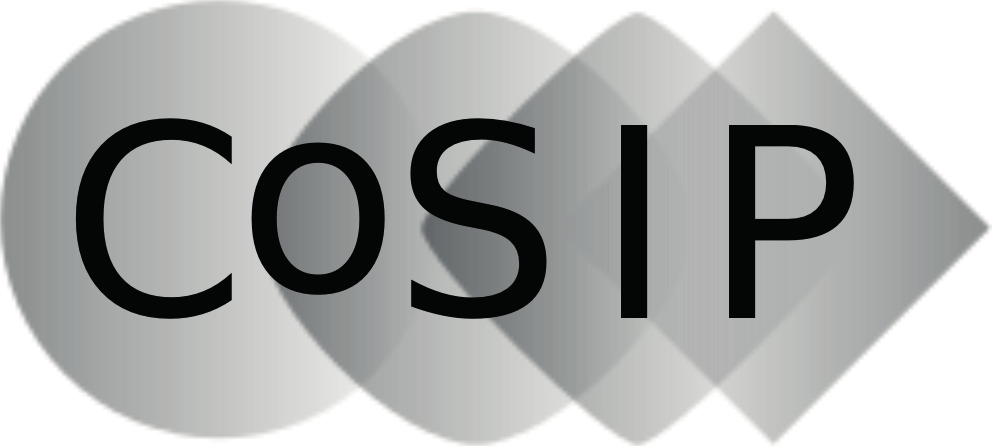Joint design of compressed sensing and network coding for wireless meshed networks
Gesamtheitlicher Ansatz von "Compressed Sensing" und Netzwerkkodierung für drahtlose vermaschte Kommunikationsnetze
- Professor Dr.-Ing. Frank Hanns Paul Fitzek
Technische Universität Dresden
Institut für Nachrichtentechnik (IfN)
- Professor Dr.-Ing. Slawomir Stanczak
Technische Universität Berlin
Heinrich-Hertz-Lehrstuhl für Informationstheorie und theoretische Informationstechnik
Zusammenfassung
In diesem Antrag werden Compressed Sensing und Netzwerkkodierung gesamtheitlich betrachtet, um korrelierte Datenströme effizient über fehlerbehaftete vermaschte Netzwerke zu übertragen. Im Gegensatz zu agnostischen Ansätzen, bei denen die Gewinne von Compressed Sensing (nur an der Quelle eingesetzt) und Netzwerkkodierung (nur im Netzwerk eingesetzt) einfach zusammengeführt werden, wird in diesem Antrag ein gesamtheitliches Konzept vorgestellt, bei dem Compressed Sensing und Netzwerkkodierung im gesamten Netzwerk eingesetzt werden, um Korrelation in den Daten an jedem Knoten auszunutzen. Ziel des Antrages ist es Lösungen zu finden, die die Übertragung der Information in kompremierter Form mit kurzen Verzögerungszeiten und robust übertragen kann. Dabei sollen Lösungen gefunden werden, die sich durch geringe Komplexität auszeichnen. Das Neue an diesem Antrag sind (i) partial denoising und partial decoding für compressed sensing mit analoger und digitaler Netzwerkkodierung, (ii) eine komplette Protokollfamilie für einen active sensing Ansatz, der die Abtastrate und Übertragungsrate optimal anpasst, (iii) eine gesamtheitliche Implementierung von Compressed Sensing und Netzwerkkodierung zur Effiziensteigerung des vorgestellten Ansatzes, (iv) zentrale und dezentrale Architekturen und (v) Ausnutzung der Korrelation an den Quellen und der Netzwerktopologie unter Berücksichtigung der Seiteninformation. Die Forschungsarbeiten werden durch mathematische Theorien als auch durch Implementierung auf einem Testbed einer Leistungsbewertung unterzogen. Die zu erwarten Endergebnisse des Projektes sind (i) Publikationen der Forschungsarbeiten, (ii) Aufbau eines Demonstrators mit 20 drahtlosen Kommunikationsknoten und 8 video cameras, (iii) international Kooperation mit Spitzenforscher von der Northeastern University, Massachusetts Institute of Technology, und Aalborg University.
Summary
The project proposal is advocating for the joint design of compressed sensing and network coding for multi-view video source over error-prone wireless meshed communication networks. In contrast to any agnostic approach where compressed sensing is used only at source nodes to exploit sparsity and network coding for efficient transport, this proposal advocates the usage of both technologies at each node in the wireless mesh network to exploit further sparsity in the network. The design goals for the solutions found are low delay and robust delivery for compressed signals as well as low complexity in the implementation. The novelties in this proposal proving world class reseach beyond state of the art are (i) the partial denoising and partial decoding for compressed sensing with analog and digital network coding, respectively, (ii) the protocol framework including the active sensing approach considering the sampling and transmit rate at source and relay nodes, (iii) a combined implementation and exploitation of code overlap of compressed sensing and network coding, (iv) design of centralized and distributed approaches for coding and compressing strategies, and (v) exploitation of source correlation and network topology considering any side and context information. The research methodology is twofold by extending the mathematical theory for compressed sensing in combination with network coding with multi level sparsity as well as an implementation phase investigating the complexity issues with respect to the delay constraints. The outcome of the project is manifold: (i) publication of research results, (ii) fully fledged demonstrator with 20 wireless nodes and 8 video cameras, (iii) international cooperation with world class partners such as Northeastern University, Massachusetts Institute of Technology, and Aalborg University.
Preprints
Publications
- S. Limmer, S. Stanczak, Towards optimal nonlinearities for sparse recovery using higher-order statistics, IEEE International Workshop on Machine Learning For Signal Processing (MLSP), Salerno, Italy, Sept. 2016.

